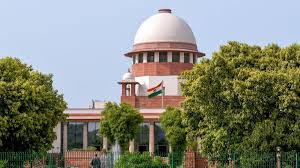Objectionable social media posts against PM Modi, RSS: Cartoonist moves SC for anticipatory bail

A prominent cartoonist has approached the Supreme Court seeking anticipatory bail after posting controversial content on social media. The posts targeted Prime Minister Narendra Modi and the Rashtriya Swayamsevak Sangh (RSS). This case has sparked intense debate on free speech, political satire, and legal limits in India.
Case Background
The cartoonist shared satirical images and commentary about PM Modi and the RSS, which many found offensive. Supporters of the Prime Minister and the RSS filed complaints, accusing the cartoonist of defamation and promoting communal tension.
Police registered an FIR under sections of the Indian Penal Code related to defamation, hate speech, and public mischief. Facing possible arrest, the cartoonist sought protection from the Supreme Court by applying for anticipatory bail.
Anticipatory Bail Plea
Anticipatory bail allows someone to avoid arrest in advance of charges. The cartoonist’s plea argues that the posts represent free speech and artistic critique protected by the Constitution.
The defense states that satire plays an important role in democracy by holding leaders accountable. They insist the posts did not incite violence or hatred but merely offered political criticism through art.
Freedom of Speech vs Respect for Leaders
This case highlights India’s ongoing debate between upholding free speech and respecting public figures. Article 19(1)(a) of the Constitution guarantees freedom of expression but allows reasonable restrictions for public order and morality.
Advocates for the cartoonist say satire is essential to democracy. They warn that punishing political criticism could silence dissent and weaken democratic values.
Meanwhile, supporters of PM Modi and the RSS argue that the posts crossed legal boundaries. They say the content hurt public sentiment and risked disturbing communal harmony. They justify legal action as necessary to maintain peace.
Social Media and Legal Issues
India’s booming social media user base often faces legal scrutiny. Several laws regulate online speech, including sections of the IPC and the IT Act. Although Section 66A of the IT Act was struck down, other provisions remain to curb offensive or inflammatory content.
Courts must balance preventing hate speech with protecting free expression. The Supreme Court has ruled that restrictions must be narrowly tailored and cannot suppress legitimate criticism.
Public and Media Reaction
The case has divided public opinion. Civil rights groups and opposition leaders condemn what they call an attack on artistic freedom. They fear growing restrictions on political satire and dissent.
Conversely, many political supporters welcome the legal proceedings. They stress the need to uphold respect for leaders and prevent inflammatory speech.
Media outlets have extensively covered the debate. Some emphasize the historical importance of cartoons in political commentary, while others call for responsible use of free speech.
Expert Views
Legal experts say this case could set an important precedent. While satire generally enjoys protection, context and intent matter.
Constitutional lawyer Anjali Verma explains, “Free speech is vital, but not absolute. Speech intended to provoke violence or hatred can be restricted. Political satire, however, must be safeguarded to ensure democratic discourse.”
The Supreme Court’s decision on bail will influence future cases involving online political criticism.
Broader Significance
This case reflects a global challenge: balancing free expression with preventing harm, especially on social media.
India’s diverse society makes this balance delicate. The court’s ruling may reaffirm democratic freedoms or signal tighter limits on dissent.
Conclusion
As the Supreme Court reviews the cartoonist’s anticipatory bail plea, the nation watches closely. The case captures the tension between artistic freedom and respect for political entities in India’s democracy.
The outcome will shape the future of political satire and social media expression in the country.






